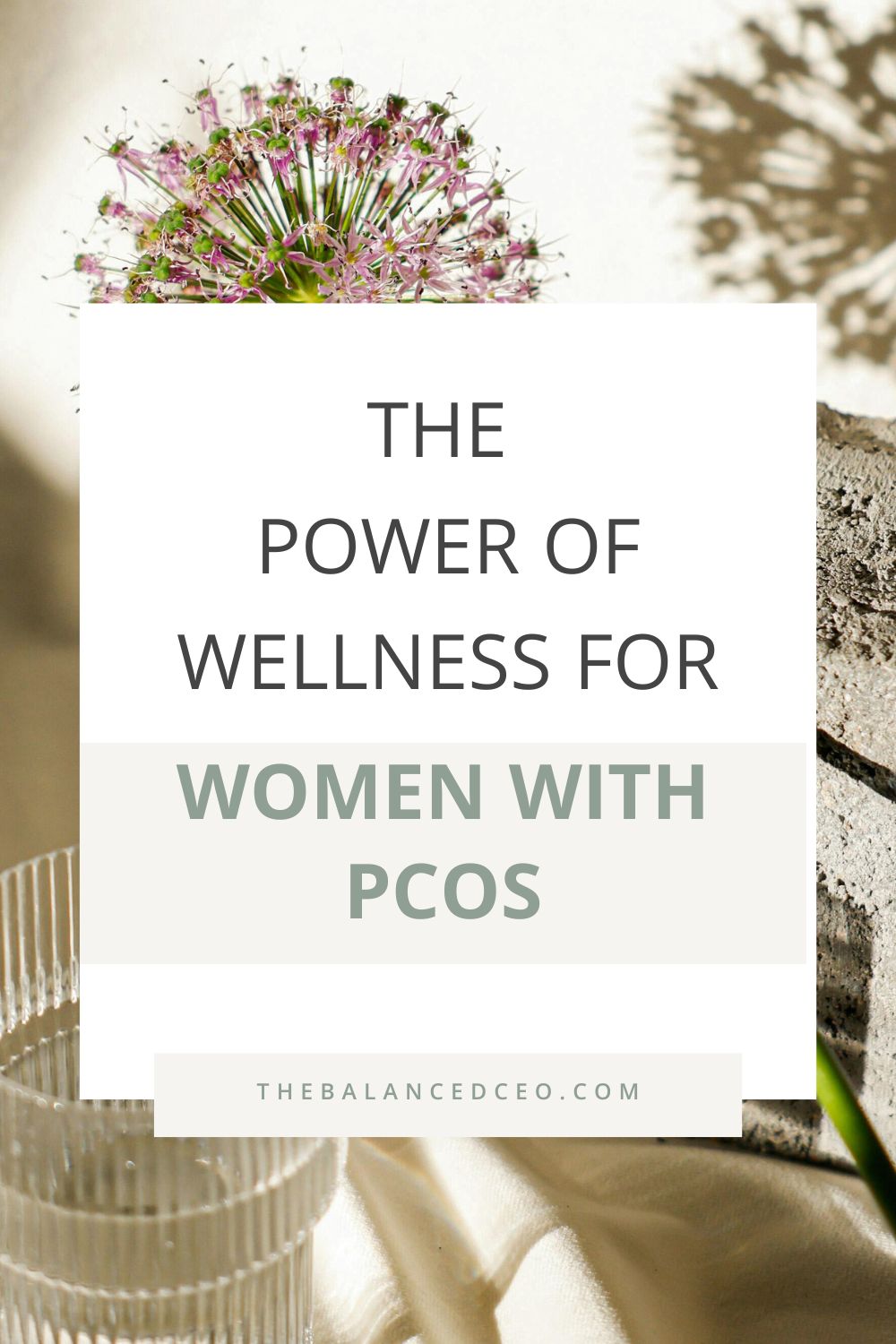This post may contain affiliate links, which means I’ll receive a commission if you purchase through my links, at no extra cost to you. Please read full disclosure for more information.

Polycystic ovarian syndrome (PCOS) affects one in ten women, and talking about this common hormonal condition is essential for women who need support. While the majority of solutions focus on the medical aspect of addressing PCOS, such as medications and doctor’s recommendations, your lifestyle plays a huge role in treating related symptoms and improving your overall well-being. This is because PCOS women experience a blend of reproductive, metabolic, and psychological comorbidities, hence the need for a holistic solution. Here are a few areas of wellness to focus on as you navigate your PCOS journey:
Diet
As is widely known, evidence-based guidelines for PCOS place nutrition as a first-line treatment method. But diet holds benefits that surpass mere weight loss; it’s a cornerstone of overall wellness because adequate nutrients can influence your energy levels, mental health, cognitive function, and emotional well-being.
While weight loss can be beneficial for managing PCOS symptoms, diet also plays a vital role in addressing various aspects of the condition. Still, cutting out entire food groups is unsustainable, so when undergoing a PCOS diet to lose weight, consider creating a natural calorie deficit that you can follow long-term without feeling deprived. Swapping complex carbs and whole grains for starch, reducing your intake of high-fat foods and high-fat cooking methods, and practicing mindful snacking can go a long way. Simple dietary changes can help PCOS women achieve 5% to 10% weight loss, improving overall health and enhancing wellness without excessive restriction.
→ Check out Bird & Be PCOS Support which is a great supplement proven to promote ovulation and manage symptoms. Get free shipping for orders over $35 at Bird&Be.
Sleep
Like diet, sleep quality can dramatically impact wellness levels and quality of life. Unfortunately, sleep disturbances are 1.5 times more likely for those with PCOS than those without. A BMC Women’s Health study found that women with PCOS sleep significantly less than women without. They also had a lower habitual sleep efficiency or the time spent in bed versus the time spent sleeping.
Finally, some studies suggest that approximately 32% to 35% of women with PCOS also struggle with obstructive sleep apnea (OSA). Long-term, this affects glucose and insulin resistance, elevating the risk of type 2 diabetes. Stress can impede quality sleep, so creating a bedroom environment conducive to rest is best. Invest in comfortable bedding and pillows, and ensure window shades can block out all light that could disturb your circadian rhythm. Do your best to follow a regular sleep schedule, as adequate rest is crucial in managing PCOS. And if you can’t sleep, don’t be hard on yourself—instead, get out of bed and do some light reading or meditation to lull yourself into a relaxed state.
Reflection
The visible symptoms of PCOS, such as weight gain, hirsutism, and acne, can take a toll on your confidence. It may also affect how you interact with others, encouraging isolation or feelings of inferiority. Per a Journal of Family and Reproductive Health, 98% of PCOS sufferers only have average self-confidence regardless of age. While building confidence is a lifelong endeavor, it’s not a hopeless one, and there are small habits you can do to build yourself up.
Expressing your innermost thoughts is a powerful wellness and self-reflection tool, allowing you to work through difficult emotions and repair your relationship with yourself and your body. This may be different for everyone: journaling, speaking with a friend, or keeping a log of voice recordings. Through reflection, you can identify what you love about yourself and what areas you feel need improvement, inside and out. When attempting a dopamine detox to handle PCOS, you want to look for triggers that lead to anxiety and depressive symptoms, such as constant social media use or emotional eating. These habits may cause you to compare yourself to others or feel worse about yourself, perpetuating a self-doubt cycle. Once you know what these habits are, you can set healthy limits.
Managing PCOS day-to-day can be challenging because it affects your body, mindset, emotions, and much more. Though it can sometimes feel like a juggling act to care for yourself holistically, incorporating small but sustainable wellness habits can put you on a positive path, allowing you to face PCOS with confidence and renewed self-assuredness.





Leave a Reply